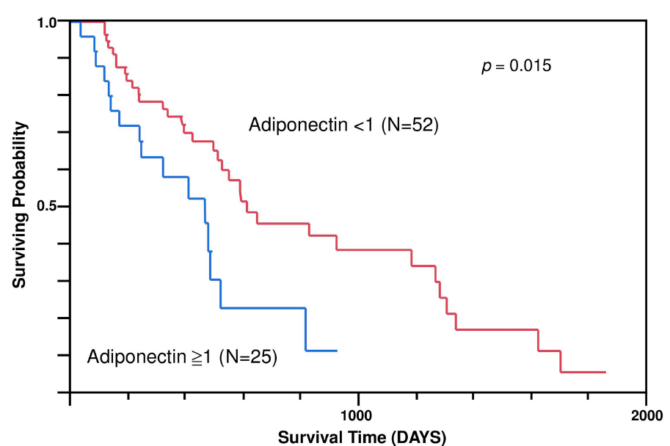
Curcumin Inhibits NonSmall Cell Lung Cancer Cells Metastasis through the Adiponectin/NF-κb/MMPs Signaling Pathway
Adipose tissue is now considered as an endocrine organ involved in metabolic and inflammatory reactions. Adiponectin, a 244–amino acid peptide hormone, is associated with insulin resistance and carcinogenesis. Curcumin (diferuloylmethane) is the principal curcuminoid of the popular Indian spice, turmeric. Curcumin possesses antitumor effects, including the inhibition of neovascularization and regulation of cell cycle and apoptosis. However, the effects of adiponectin and curcumin on non-small cell lung cancer (NSCLC) remain unclear. In this study, we evaluated the expression of adiponectin in paired tumors and normal lung tissues from 77 patients with NSCLC using real-time polymerase chain reaction, western blotting, and immunohistochemistry. Kaplan–Meier survival analysis showed that patients with low adiponectin expression ratio (<1) had significantly longer survival time than those with high expression ratio (>1) (p = 0.015). Curcumin inhibited the migratory and invasive ability of A549 cells via the inhibition of adiponectin expression by blocking the adiponectin receptor 1. Curcumin treatment also inhibited the in vivo tumor growth of A549 cells and adiponectin expression. These results suggest that adiponectin can be a prognostic indicator of NSCLC. The effect of curcumin in decreasing the migratory and invasive ability of A549 cells by inhibiting adiponectin expression is probably mediated through NF-κB/MMP pathways. Curcumin could be an important potential adjuvant therapeutic agent for lung cancer in the future.
